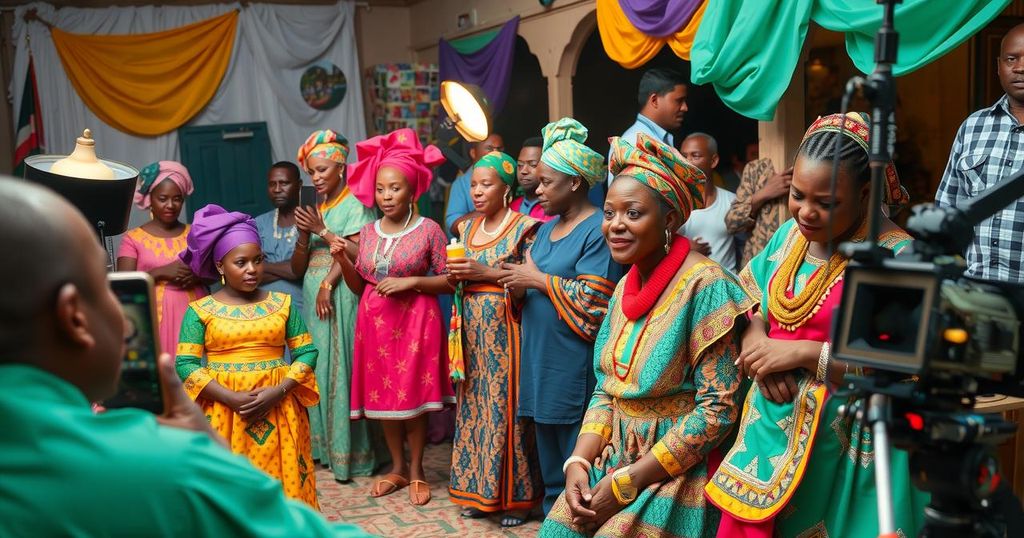Inside Nollywood: The Emergence of Nigeria’s Cultural Film Powerhouse
Nollywood, Nigeria’s film industry, has become a cultural powerhouse since its inception in 1992 with “Living in Bondage.” It has transitioned from VHS to streaming platforms, despite challenges like piracy. The industry’s appeal lies in its relatable storytelling. Recent films like “The Wedding Party” and “Lionheart” showcase its diverse range and global influence.
Nollywood, Nigeria’s dynamic film industry, has emerged as a significant cultural force that rivals both Hollywood and Bollywood in production volume. The industry began with the landmark film “Living in Bondage” in 1992, which ignited a surge of low-budget films that resonate with the local populace through relatable narratives rooted in Nigerian culture and language.
The progress of Nollywood is noteworthy as it transitioned from VHS formats to cinema screenings and now thrives on streaming platforms, mirroring the complexities of Nigeria’s socio-political environment. Despite facing ongoing challenges such as piracy and restricted distribution channels, the industry’s strength lies in its compelling storytelling and authentic representation of everyday African experiences.
Current successes, such as “The Wedding Party,” “Lionheart,” and “Gangs of Lagos,” exemplify the diverse offerings of Nollywood, ranging from comedy to drama and action. These films solidify the global influence and cultural significance of Nollywood, showcasing its capacity to engage audiences both domestically and internationally.
In conclusion, Nollywood has established itself as a cultural powerhouse that continues to evolve and adapt to changing technologies and audience preferences. Its roots in local culture and relatable storytelling distinguish it from other film industries. As it faces challenges, its successes underline the thriving nature of Nollywood and its importance as a voice for African narratives in the global film landscape.
Original Source: iafrica.com




Post Comment